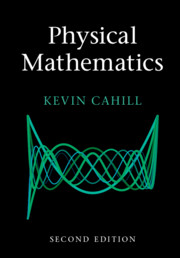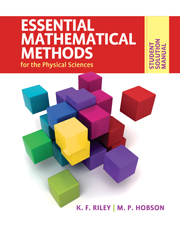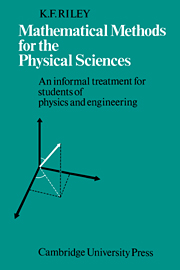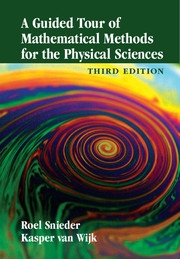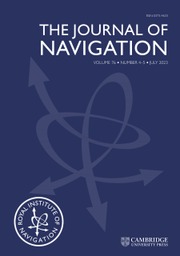Physical Mathematics
Unique in its clarity, examples, and range, Physical Mathematics explains simply and succinctly the mathematics that graduate students and professional physicists need to succeed in their courses and research. The book illustrates the mathematics with numerous physical examples drawn from contemporary research. This second edition has new chapters on vector calculus, special relativity and artificial intelligence and many new sections and examples. In addition to basic subjects such as linear algebra, Fourier analysis, complex variables, differential equations, Bessel functions, and spherical harmonics, the book explains topics such as the singular value decomposition, Lie algebras and group theory, tensors and general relativity, the central limit theorem and Kolmogorov's theorems, Monte Carlo methods of experimental and theoretical physics, Feynman's path integrals, and the standard model of cosmology.
- Describes the fundamental mathematics that students and researchers need in their physics courses and research
- Explains the mathematics simply, making it easy for all students of physics and other physical sciences to learn from this book
- Includes topics important in physics but not covered in most math books; uses numerous examples, many drawn from current research
Reviews & endorsements
'Cahill has given us a concise and mathematically clear text, one that adds many contemporary topics to a classic selection.' Roy J. Glauber, Harvard University, Massachusetts
'Kevin Cahill’s book collects and presents the mathematical methods of physics succinctly, and will be much welcomed by students and researchers alike.' A. Zee, University of California, Santa Barbara
'This book provides a comprehensive coverage of the mathematics necessary for advanced study in physics. The key notions are presented concisely and accurately with a wealth of beautiful examples borrowed from physics, biophysics, and probability theory. The inclusion of advanced topics such as differential forms and group theory makes this book a most useful resource for graduate students and researchers in theoretical physics.' Alain Comtet, Université Pierre et Marie Curie
'I am impressed by the extremely clear and direct style with which this book has been written … The author has distilled his experience and obvious enjoyment of the subject, and presented mathematics in a remarkably human and accessible form.' David Waxman, Fudan University, Shanghai
‘The book places itself as a reference for the undergraduate students, the graduate students and the researchers who need to refresh some topics. As the author indicates, the book covers all the mathematics needed for a physicist. Also, the instructor who gives a course on mathematical physics can find useful material in the book. The topics are explained with little stress on the physical meaning which is meant to come spontaneously progressing in the book. The completeness of topics is preferred to proofs and deep explanations … this book is indicated for the student who wants a solid and complete reference for mathematical tool in physics. The instructor can use the book as a reference for basic or advanced courses of mathematical physics, as well as for more theoretically based courses.’ Stefano Scali, Contemporary Physics
‘Physical Mathematics is an excellent textbook for graduate students in physics and engineering. It covers so many math topics often seen in textbooks in physics and engineering. Therefore, this book is a nice reference book for advanced study and theoretical modeling.’ Guiren Wang, University of South Carolina
Product details
August 2019Hardback
9781108470032
778 pages
252 × 178 × 39 mm
1.68kg
71 b/w illus. 465 exercises
Available
Table of Contents
- Preface
- 1. Linear algebra
- 2. Vector calculus
- 3. Fourier series
- 4. Fourier and Laplace transforms
- 5. Infinite series
- 6. Complex-variable theory
- 7. Differential equations
- 8. Integral equations
- 9. Legendre polynomials and spherical harmonics
- 10. Bessel functions
- 11. Group theory
- 12. Special relativity
- 13. Tensors and general relativity
- 14. Forms
- 15. Probability and statistics
- 16. Monte Carlo methods
- 17. Artificial intelligence
- 18. Order, chaos, and fractals
- 19. Functional derivatives
- 20. Path integrals
- 21. Renormalization group
- 22. Strings
- References
- Index.

